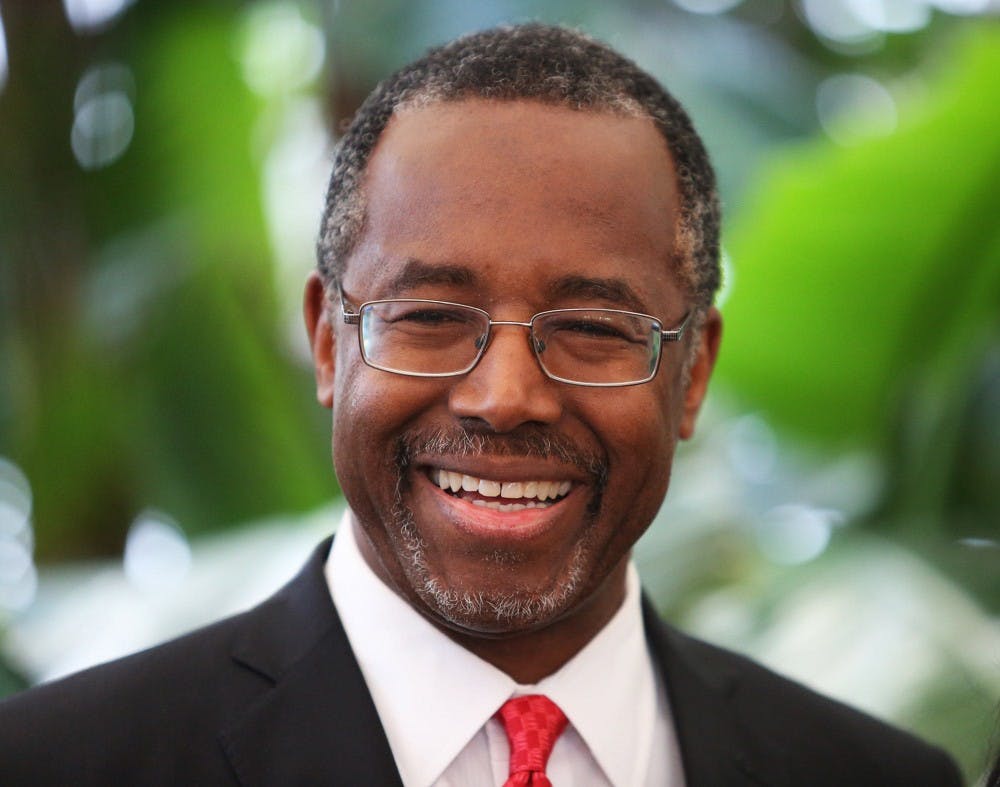Recent Elon University Poll results reveal Republican presidential candidate Ben Carson has a double-digit lead over Donald Trump — his nearest competitor — in North Carolina. The results, released Nov. 5, also show Carson has a lead over Democratic candidate Hillary Clinton.
“Nearly a third of registered Republican voters here said they plan on voting for Carson, more than 10 points ahead of Donald Trump, his closest primary competitor,” said Kenneth Fernandez, assistant professor of political science and policy studies and director of the Elon University Poll, in a news release.
When polling for presidential preferences, 31 percent of respondents said they would side with Carson, while 19 percent would side with Trump. Marco Rubio and Ted Cruz tied for third place with 10 percent.
Among Democrats and Democratic-leaning voters, 57 percent said they would support Hillary Clinton, whereas 24 percent said they would support Bernie Sanders.
When choosing between Carson and Clinton, North Carolina residents favored Carson 48-43 percent, a lead that has shrunk since September. Another Republican candidate with a hypothetical advantage is Rubio, who held a 46-45 lead over Clinton.
The day after the poll’s Nov. 5 news release, Politico published a story saying Carson never applied or received admission to West Point, despite claims in his autobiography that he was offered a full scholarship there. An article published by The Wall Street Journal the same day questioned a class Carson took at Yale University and the final exam that had every student but him walk out.
The Elon University Poll surveyed more than 1,000 North Carolina residents via telephone. Pollers also surveyed state residents about North Carolina gubernatorial candidates and President Obama.
Democratic Attorney General Roy Cooper has pulled ahead of incumbent Republican Gov. Pat McCrory in a match-up between the two North Carolina political leaders. Cooper leads McCrory 45-40 percent, the first time the Elon University Poll has found him winning a head-to-head matchup in the 2016 gubernatorial contest.
Cooper now does better with Independents (40-36 percent), a reversal from September when McCrory had support of 44 percent of Independents and Cooper had only 39 percent.


